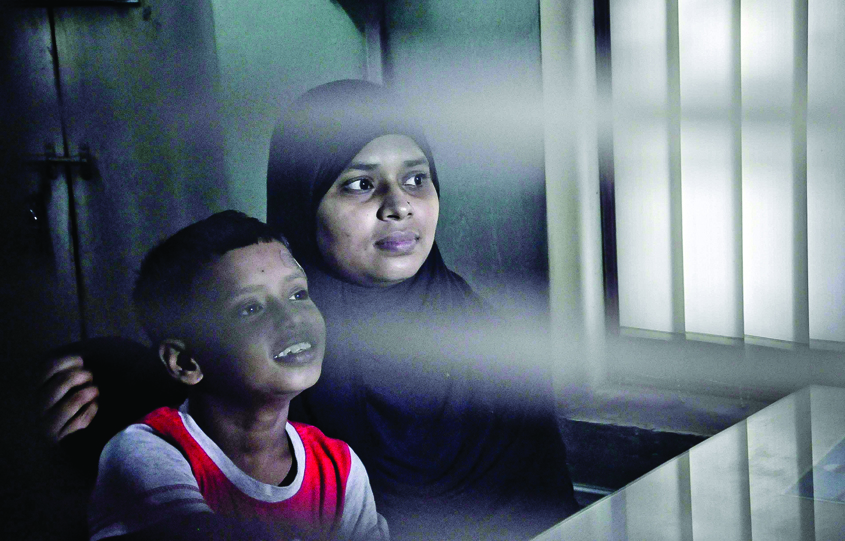Muslim women, who have been the victims of marriage laws under the ambit of the Shariat, have hailed as progressive the Supreme Court’s verdict setting aside the contentious practice of instant triple talaq or Talaq-e-biddat as unconstitutional. But they also told The Sunday Guardian that they had concerns over triple talaq cases piling up in the judiciary.
“This is a fresh move and at least the future generation of Muslim women will not face the brunt of such baseless and oppressive practice. But I don’t know what will happen to those who are already fighting their cases. A lot of women in my community have been running around courts for years, but there hasn’t been any result,” said 23-year-old Mumbai-based Ikhra, who was divorced by her husband within four months of their marriage.
Ikhra’s sister-in-law, who was married to Ikhra’s brother, left her husband and fled with a man. Ikhra’s husband held her and her family responsible for this and divorced Ikhra by uttering talaq thrice.
Reiterating a similar ordeal, another triple talaq victim, Jahara said, “For a woman, triple talaq is like a curse. Men in our community have made marriage a joke. Anything can trigger them to utter talaq thrice and that becomes irrevocable.”
Responding to the SC’s verdict on instant triple talaq, Jahara added, “I’m happy for the younger generation who are still to marry. But at the same time I am confused what this verdict means for women like me. The judiciary must take pending cases of triple talaq seriously too.”
Eight years ago, Jahara was divorced by her husband because she did not agree with the opinion of her husband when they were searching for a bride for her brother-in-law.
Ikhra and Jahara represent a large cross-section of Muslim women who have faced the brunt of triple talaq and are fighting for justice. Instant triple talaq or Talaq-e-biddat, which is banned in 22 Muslim-majority countries, has no recognition in Quran and finds no specific mention in Muslim Personal Law (Shariat) Application Act, 1937.
The Shariat Act recognises only Talaq-e-Ahsan and Talaq-e-Hasan, which are considered to be a proper way of dissolving marriages in Islam.
The other forms of divorce permissible in Islam are Khula, where the woman initiates the divorce, and Mubaraat, where both the parties mutually seek to end the marriage.
A FORWARD STEP
Putting an end to arguments over the validity of instant triple talaq, the Supreme Court has declared the practice unconstitutional and arbitrary. Legal experts have pointed out that after the SC’s verdict, other courts do not have to examine the validity of triple talaq and most likely, the marital status of the aggrieved women will be restored.
“The apex court verdict is clear. Triple talaq is unconstitutional. The status of aggrieved Muslim women will be restored and future cases will be dealt with in the same vein. For the first time, the verdict has given the right to Muslim women to challenge triple talaq. Cases will be dealt with more swiftly now,” Shishir Pinaki, senior Supreme Court lawyer, told The Sunday Guardian.
“For a woman, triple talaq is like a curse. Men in our community have made marriage a joke. Anything can trigger them to utter talaq thrice and that becomes irrevocable. I’m happy for the younger generation who are still to marry. But at the same time, I am confused what this verdict means for women like me. The judiciary must take pending cases of triple talaq seriously too.”
“It is a historic judgment. It is a victory for all those ordinary women who came out and fought with exemplary courage against such a regressive religious practice,” Zakia Soman, a women’s rights activist, told The Sunday Guardian. Soman’s Bharatiya Muslim Mahila Andolan (BMMA) was one of the six petitioners in the case.
Trupti Desai, another women’s rights activist and founder of the Bhumata Brigade, approved of the SC’s verdict and expressed her confidence in the ruling Narendra Modi-led BJP government for passing a strong legislation that quashes the arbitrary practice of triple talaq.
“After the Haji Ali verdict, this verdict is an affirmation that women’s rights are now being taken seriously. For ages, women have faced suppression from men in the name of religion. With a strong intention to bring acche din for women, I think this government will definitely bring the desired reforms in the coming winter session of Parliament itself,” Trupti Desai told this reporter.
Though the apex court’s verdict has mostly been appreciated, a few critics said that the judgment did not offer anything new and has only led to confusion.
Flavia Anges, a women’s rights lawyer, told The Sunday Guardian: “There’s nothing new in the judgment. In the landmark Shamin Ara case verdict, the SC has made it very clear that talaq, which is not pronounced as per the Quaranic injunction, will not be valid. And unless the Muslim Personal Law Board accepts the verdict and subsequently works towards reformation, this ruling will only create confusion within the community.”
Responding to such apprehensions among critics, Zakia Soman said that the previous judgments where courts had held instant triple talaq as invalid were individual cases with no far-reaching impact on the community as a whole.
“Any forward movement is a welcome move. There are always certain challenges, but even the jurisprudence evolves over time. There should be a clear intent towards reform and that’s what the verdict indicates,” Soman said.

